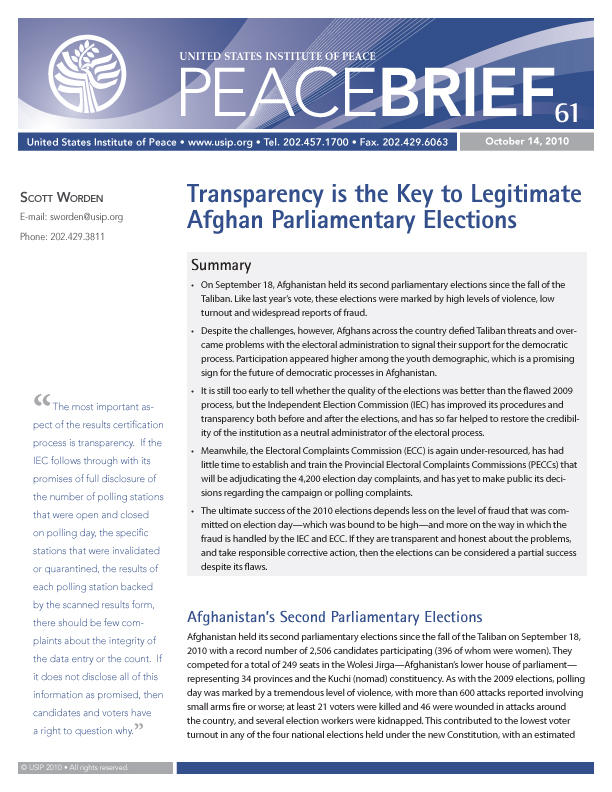Scott Worden is a senior rule of law adviser at the U.S. Institute of Peace and observed the 2010 elections from Kabul, Afghanistan as a senior expert with the National Democratic Institute’s observation mission. Worden was one of three U.N.-appointed commissioners on the 2009 Electoral Complaints Commission in Afghanistan.

Summary

- On September 18, Afghanistan held its second parliamentary elections since the fall of the Taliban. Like last year’s vote, these elections were marked by high levels of violence, low turnout and widespread reports of fraud.
- Despite the challenges, however, Afghans across the country defied Taliban threats and overcame problems with the electoral administration to signal their support for the democratic process. Participation appeared higher among the youth demographic, which is a promising sign for the future of democratic processes in Afghanistan.
- It is still too early to tell whether the quality of the elections was better than the flawed 2009 process, but the Independent Election Commission (IEC) has improved its procedures and transparency both before and after the elections, and has so far helped to restore the credibility of the institution as a neutral administrator of the electoral process.
- Meanwhile, the Electoral Complaints Commission (ECC) is again under-resourced, has had little time to establish and train the Provincial Electoral Complaints Commissions (PECCs) that will be adjudicating the 4,200 election day complaints, and has yet to make public its decisions regarding the campaign or polling complaints.
- The ultimate success of the 2010 elections depends less on the level of fraud that was committed on election day—which was bound to be high—and more on the way in which the fraud is handled by the IEC and ECC. If they are transparent and honest about the problems, and take responsible corrective action, then the elections can be considered a partial success despite its flaws.
About this Brief
Scott Worden is a senior rule of law adviser at the U.S. Institute of Peace and observed the 2010 elections from Kabul, Afghanistan as a senior expert with the National Democratic Institute’s observation mission. Worden was one of three U.N.-appointed commissioners on the 2009 Electoral Complaints Commission in Afghanistan.